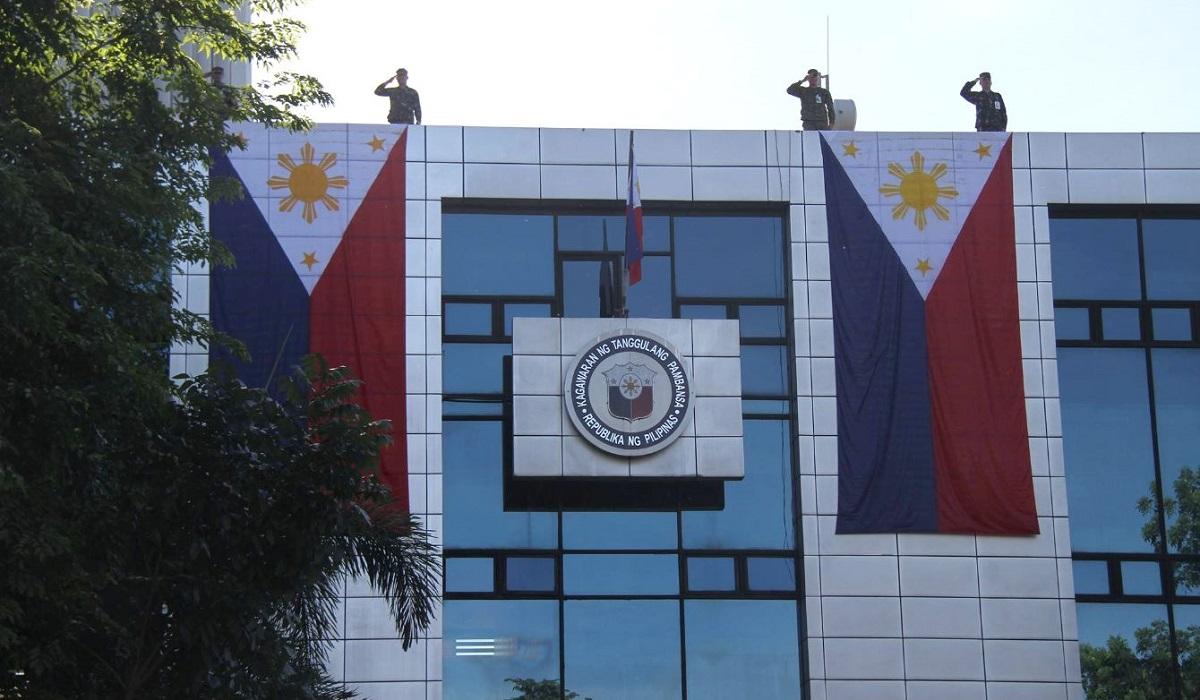DND: China lacks ability to hold open, transparent, legal negotiations
By JOVILAND RITA, GMA Integrated News Published March 29, 2024 11:21am The Philippine Department of National Defense (DND) on Friday called out China’s alleged inability to conduct open, transparent, and legal negotiations amid the issues in the West Philippine Sea (WPS). “China’s defense ministry statement clearly reflects their isolation from the rest of the world […]


By JOVILAND RITA, GMA Integrated News
The Philippine Department of National Defense (DND) on Friday called out China’s alleged inability to conduct open, transparent, and legal negotiations amid the issues in the West Philippine Sea (WPS).
“China’s defense ministry statement clearly reflects their isolation from the rest of the world on their illegal and uncivilized activities in the West Philippine Sea,” the DND said in a statement.
“It also shows the inability of the Chinese Government to conduct open, transparent, and legal negotiations. Their repertoire consists only of patronizing and, failing that, intimidating smaller countries.”
The DND issued the statement after China warned the Philippines that it was straying on “a dangerous path” as Beijing defended its coast guard vessels’ water cannon attack against a Philippine boat during a resupply mission to BRP Sierra Madre in Ayungin Shoal on March 23.
Three Filipino Navy personnel were injured in China’s latest water cannon attack, which was not the first time the Chinese Coast Guard (CCG) conducted such action.
China’s Ministry of National Defense said the Philippines should realize that provocative actions in the South China Sea would only do more harm than good. It also blamed the US for interference in the region.
“The Philippines’ harassment and provocations are the immediate cause of the recent escalation of the South China Sea issue,” Wu Qian, a spokesperson for China’s Ministry of National Defense, said.
“It is straying further down a dangerous path. The Chinese side will not allow the Philippines to act willfully. So we have responded with legitimate, resolute, and restrained actions,” Wu added.
The DND dismissed China’s accusations, saying “[t]he world has seen and knows that the Filipino people are not aggressors. We will never seek a fight or trouble. Neither will we be cowed into silence, submission, or subservience.”
“We do not yield. We are Filipinos,” it added.
Proportionate response
On Thursday, President Ferdinand “Bongbong” Marcos Jr. said the Philippines will execute a “proportionate, deliberate, and reasonable” response following the March 23 water cannon incident.
“Over the succeeding weeks there shall be, implemented by the relevant national government agencies and instrumentalities, a response and countermeasure package that is proportionate, deliberate, and reasonable in the face of the open, unabating, and illegal, coercive, aggressive, and dangerous attacks by agents of the China Coast Guard and the Chinese Maritime Militia,” Marcos said in a statement.
“We seek no conflict with any nation, more so nations that purport and claim to be our friends but we will not be cowed into silence, submission, or subservience. Filipinos do not yield,” he added.
Marcos said he has been in “constant communication” with representatives of allies, partners, and friends in the international community.
“They have offered to help us on what the Philippines requires to protect and secure our sovereignty, sovereign rights, and jurisdiction while ensuring peace and stability in the Indo-Pacific. I have given them our requirements and we have been assured that they will be addressed,” he said.
Armed Forces of the Philippines (AFP) chief General Romeo Brawner Jr. earlier said that they will apply changes to the resupply missions in the WPS after Filipino military personnel were injured in China’s water cannon attacks.
China claims almost the entire South China Sea, a conduit for more than $3 trillion in annual ship commerce. Its territorial claims overlap with those of the Philippines, Vietnam, Malaysia and Brunei.
Parts of the waters within the Philippines’ exclusive economic zone (EEZ) have been renamed as West Philippine Sea.
In 2016, an international arbitration tribunal in The Hague said China’s claims had no legal basis, a decision that Beijing has rejected. —KBK, GMA Integrated News














